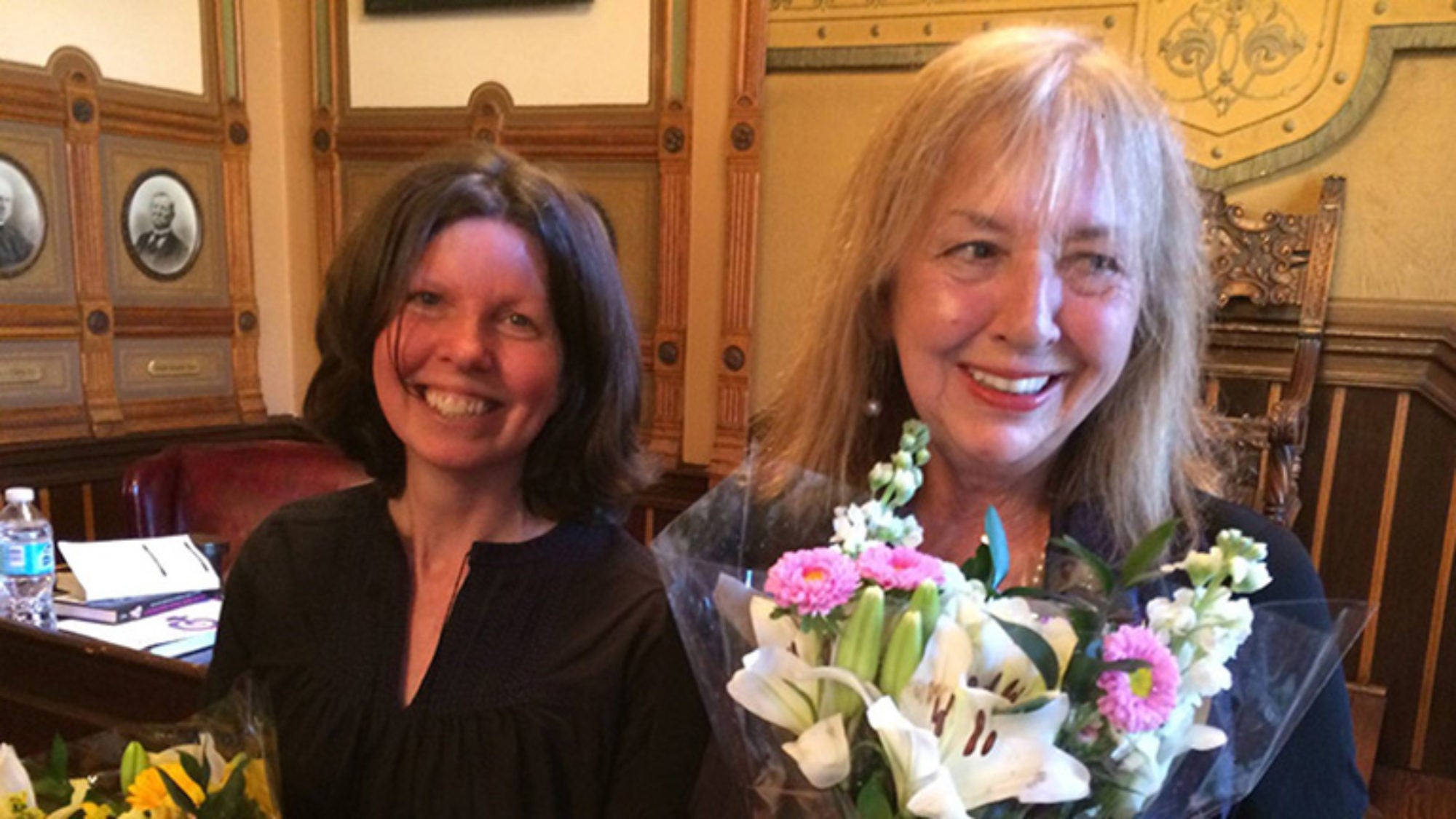
Title: From Insult to Grace: New Book of Poems Reveals Joy and Challenges of Aging
From the first gray hair to the first serious contemplation of mortality, How Did This Happen? Poems for the Not So Young Anymore, written by two Georgetown graduates, provides poetry for every stage and aspect of aging.
The book, recently published by Grand Central Publishing in 2017, is also timely – the U.S. Census Bureau predicts that by 2020, the percentage of people over 65 will be nearly 17 percent and 22 percent by 2040, up from about 14 percent in 2013.
Authors Mary Esselman (C’84, G’87) and Elizabeth Ash Vélez (G’83) juxtapose their own commentary in the book with poems by everyone from Horace to Gwendolyn Brooks.
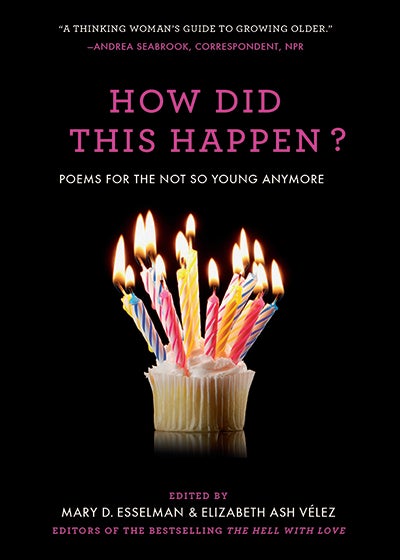 “We go from this idea of what we call cosmetic insults and fears – the first gray hair, the first creaky joint – to cosmic ones on how we accept with grace the fact that we are all going to die,” says Vélez, who teaches in Georgetown’s Women’s and Gender Studies Program. “Somehow we have to live with this knowledge of getting older.”
“We go from this idea of what we call cosmetic insults and fears – the first gray hair, the first creaky joint – to cosmic ones on how we accept with grace the fact that we are all going to die,” says Vélez, who teaches in Georgetown’s Women’s and Gender Studies Program. “Somehow we have to live with this knowledge of getting older.”
Carpool Lane Reading
Esselman says that after the two graduate students met at Georgetown they quickly discovered they both turned to poetry as well as literature to “get through life crises and also just more mundane periods.”
This is their fourth book together, having previously authored The Hell with Love: Poems to Mend a Broken Heart (2002); Kiss Off: Poems to Set You Free (2003); and You Drive Me Crazy: Love Poems for Real Life (2005), all published by Warner Books.
“I think there is something about the condensed nature of most poems that makes them ideal to turn to,” she says. “They are compact enough, and they’re beautiful in a way that doesn’t require the same effort and attention that longer literature does. I can read a poem waiting to pick up my son in a carpool lane, but I’m probably not going to get through a novel.”
Funny, Scary and Serious
The book sets up six “pivotal stages” of aging – “Insult, Injury, Defiance, Dread, Grit and Grace,” each with an introduction and a variety of poems reflecting that stage.
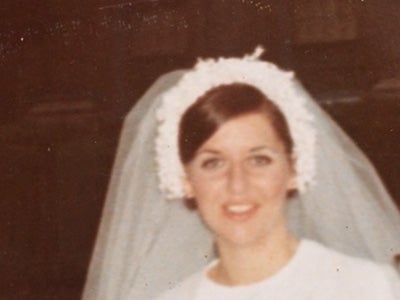
Although the authors introduce each stage of the current book, they make clear that they are talking about our own personal experiences.
“We didn’t want to seem too prescriptive or imply that everybody went through what we went through, so we included a wide variety of poems,” Esselman says.
Thus there are funny-scary poems (in the Injury section) like “At Fifty” by Eric Rawson, about his colonoscopy – “From now on you’re something between salvage and experiment,” and more serious poems (in the Grace section) such as Ada Limón’s “The Conditional,” which ends with these lines:
Say we spend our last moments together, Clutching the dog, watching the sky burn. Say, It doesn’t matter. Say, That would be Enough. Say you’d still want this: us alive, right here, feeling lucky.
Found Poems
There are also “found” poems in the book, including comedienne Sarah Silverman’s 2013 tweet: “Oh my gosh I’m embarrassed. I just found out I’m a woman AND I’m 42. I am so sorry.”
Another “found poem,” in the Defiance section, is an interview by Katie Couric of Frances McDormand in which the broadcast journalist asks the actress if she ever has moments when she feels bad about her image on screen.
McDormand pointed to her laugh lines and said unapologetically, “… Twenty years of going, hi!, wow!, or oh my g–– You know, this is the map … this is the road map.”
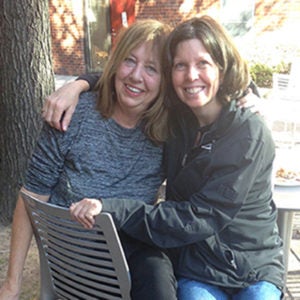
Generational Differences
Vélez, 72, and Esselman 55, have been friends since they pursued masters degrees in English from Georgetown. Both have taught at the university (Esselman was once Vélez’ teaching assistant) and both once worked as reporters at People magazine.
Esselman says she began thinking about the current book when she was about 46 and “started to experience symptoms of getting older and didn’t know what they were.”
“I had my first child at 41, so I was out of sync with younger moms,” she explains. “Some of the books about aging were so depressing, like Gail Sheehy’s Menopause: The Silent Passage, with the cover of a leaf that is drying up and turning yellow – these kinds of books seemed to not speak to my experiences.”
Strong, Powerful and Mortal
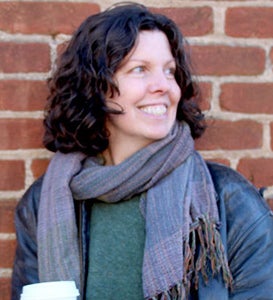
Esselman wanted a book that “would make people feel not only confidentbut also affirmed and strong and powerful.” Her co-author likes to point out only somewhat facetiously that she has a terminal illness.
“I’ve really come to terms with that and with how I look as an older person,” says Vélez, who teaches feminist theory at Georgetown. “And I actually like the way I look. But there is still a part of me that thinks, ‘When do I just get to be an old crone? Can I stop wearing lipstick? And that’s why we include all these poems about the complicated nature of aging.”
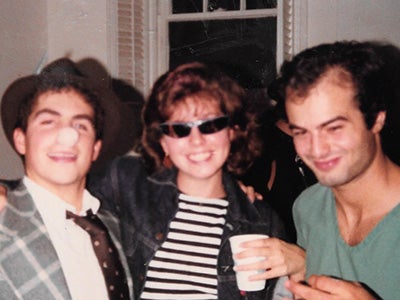
Mary Esselman with friends as a student at Georgetown.
Georgetown as Poetry
Esselman, who has taught at several universities, says she owes a lot to her Georgetown experience as an undergraduate English major.
“All at once as a freshman I was getting literature and poetry combined with philosophy and theology, combined with history and politics,” she says. “It was absolutely formative.”
“Georgetown helped me find a way of weaving together these esthetic and intellectual influences with my day-to-day responses to life,” Esselman adds. “In a way, the Georgetown experience was its own poem and continues to be for me.”